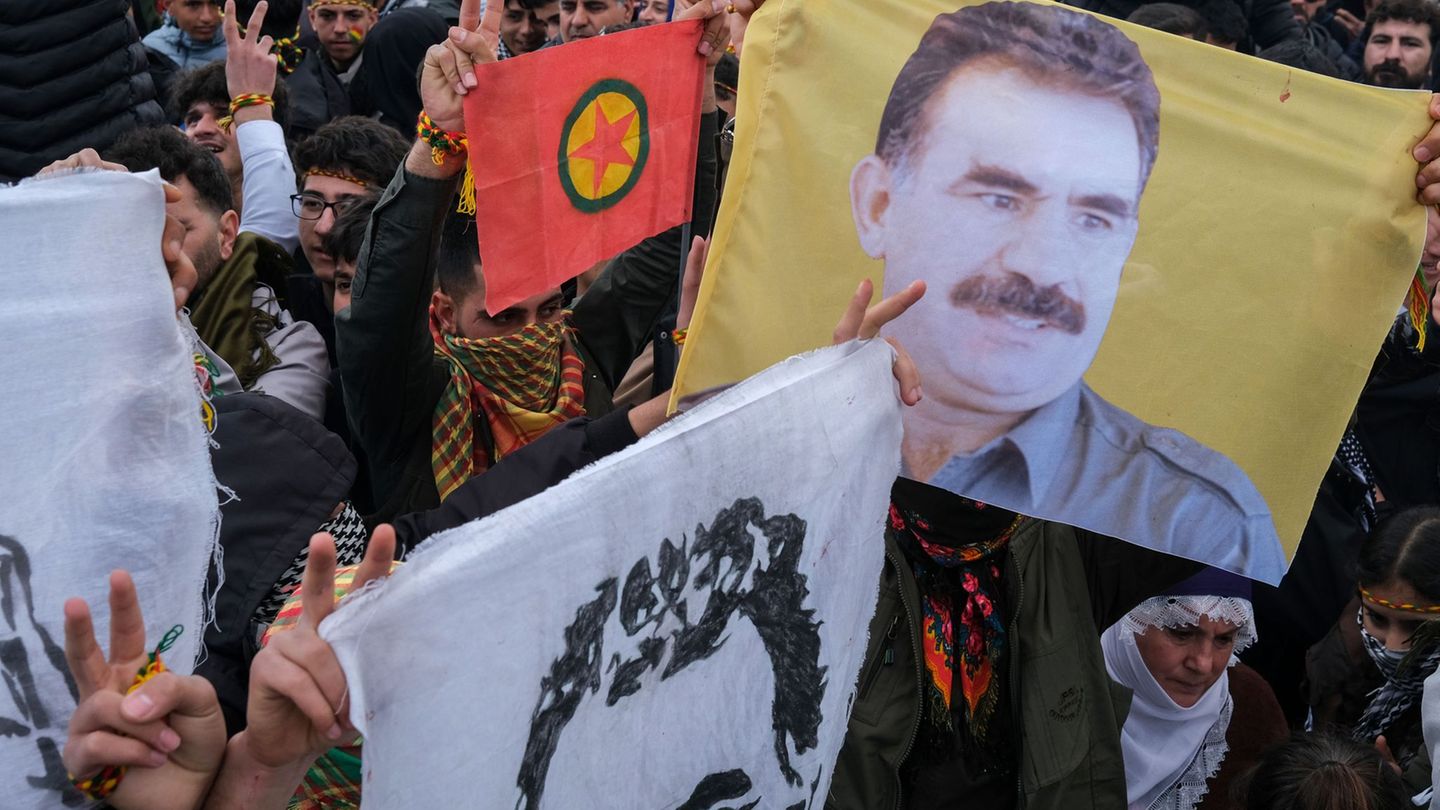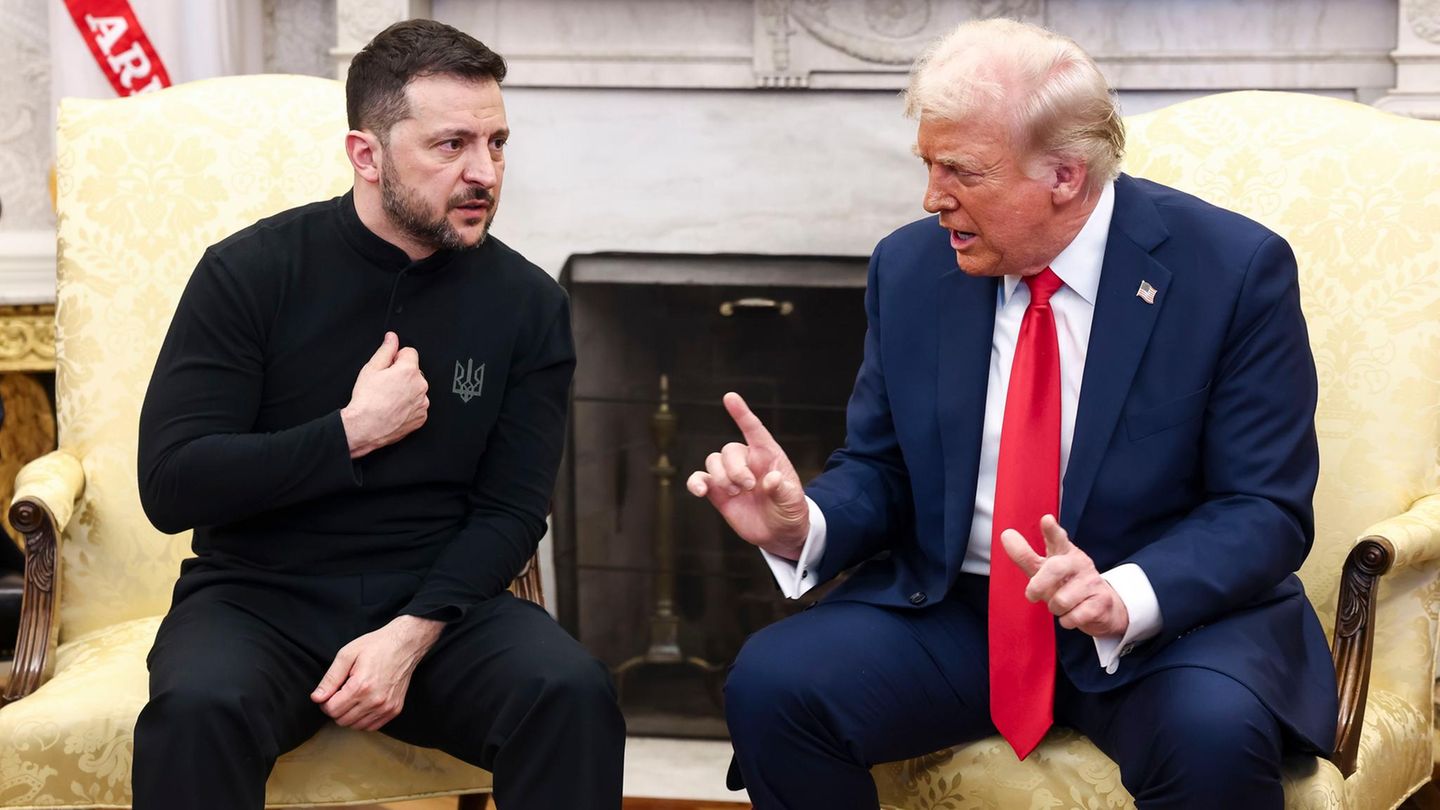Kurdish conflict
Does the Kurdish conflict in Turkey end with PKK resolution?
Copy the current link
Add to the memorial list
With the dissolution of the PKK, a new chapter in Turkish-Kurdish relationship could begin. Whether there is really a permanent peace depends on many open questions.
The Kurdish Workers’ Party PKK, which is classified as a terrorist organization, gives up its armed fight against the Turkish state – at least officially. The announcement arouses hope for an end to the bloody conflict. But it is still questionable whether all fighters will follow the call and what the new development for the future of the Kurds in Turkey will mean. Here are some questions and answers on the topic.
Who is the PKK and what does it stand for?
PKK is the abbreviation for Kurdistan’s workers’ party (Kurdish: Partiya Karkerên Kurdistanê). It is a militant group that fights against the Turkish state. The PKK was founded in 1978 by Abdullah Öcalan, mainly in response to the political, social and cultural oppression of the Kurds in Turkey. At the beginning she was a political organization that Kurds called for resistance to the Turkish government. Later she became a militant movement that increasingly started violent means to achieve her goals – including terrorist attacks on civilians.
In the past, the Turkish military regularly accomplished militarily against the PKK. According to the Denkfabrik International Crisis Group, around 40,000 people have so far been killed in the context of the conflict over the years. Today the PKK has its headquarters in the Iraqi Kandil mountains and is also present in Turkey, Syria, Iran and Europe.
In the meantime, the PKK is no longer expressly advocating for an independent Kurdish state, but for extensive autonomy and more rights for Kurds within the existing states. The organization is considered a terrorist organization in Turkey, the EU and the USA.
Why does the resolution come now?
Experts see several reasons for this. On the one hand, the PKK in Iraq was weakened by the ongoing Turkish attacks. In the Kurdish population, too, the demand for the end of the fights is growing. In addition, a power vacuum emerged with the Gaza War, the weakening of Iran and the overthrow in Syria in the region – which both Kurds and Turkey want to help shape.
Öcalan asked the PKK in February to dissolve to participate in the democratic process instead of fighting. An initiative of the ultra -nationalist government partner of Turkish President Recep Tayyip Erdogan, the MHP, was preceded by the call. Her boss, Devlet Bahceli, previously actually pronounced opponent of reconciliation with the PKK, had brought a release of the Öcalans, which has been detained in Turkey since 1999, the PKK should put down and dissolve. So far, Öcalans has not been released. Erdogan had decidedly rejected this, just as possible amnesties imprisoned for terrorism.
What does the resolution of the PKK mean for Ankara?
The PKK conflict is one of the most durable security policy focal points in Türkiye. For the government in Ankara, disarming and dissolution of the PKK is a historical achievement. In the fight against PKK positions in Iraq, Syria and Turkey, horrendous sums have also flowed in recent years.
In terms of domestic policy, observers see the peace process as a vehicle for the further division of the opposition. The Prourdische Demen-Parti, for example, was assumed that it was criticized in its criticism of the arrest and removal of the Mayor of Istanbul Ekrem Imamoglu in favor of the peace process. The DES party itself – mediator between the Turkish government and the PKK founder Öcalan – denies this.
A not insignificant role should also play Erdogan’s amended constitutional change in order to be able to run again as president. For this he is dependent on additional votes in parliament, such as those of the party.
What’s next?
It is completely unclear whether all factions of the PKK fragmented in several groups will follow the call for resolution. It is also still unclear how the Kurdish militia YPG will behave, the large areas in northern Syria. Ankara sees her as a PKK offshoot.
Another open question is how the PKK, which comprises thousands of fighter. Experts suspect that Iraq could play a role in this. In a further step, it should then be clear whether the fighters return to Turkey. The PKK demands that Öcalan’s resolution process should be conducted. How and whether this can be implemented is still unclear.
What effects would a new peace process have on the rights of the Kurds in Turkey?
The Kurds in Turkey have been calling for social and political equality for decades. This is also presented now: negotiation points could be the recognition of the Kurdish as a national language or the amendment to the constitutional article, which says that every Turkish citizen is Turk.
Another central demand for the Kurdish side is an end to the establishment of compulsory administrators. In the provinces in Türkiye ruled by the Percurdian Party, elected mayors are repeatedly replaced by government -related forced administrators. Last but not least, an end of Öcalans is required in an insulation.
It is unclear whether the fate of the Erdogan critic and former boss of the Percurdish Party, Demirta Demirtas, who has been imprisoned since 2016, could also be part of negotiations.
How could the process fail?
In addition to the PKK, an actual peace process would also have to include other Kurdish groups and actors, especially since it is not just about the armed struggle between the PKK and the Turkish state. Observers also say that a serious peace process can only go hand in hand with at least partial democratization. Many doubt whether this can be done under the leadership of the increasingly authoritarian Erdogan. A lot can still go wrong with the disarmament of the PKK fighters.
dpa
Source: Stern
I have been working in the news industry for over 6 years, first as a reporter and now as an editor. I have covered politics extensively, and my work has appeared in major newspapers and online news outlets around the world. In addition to my writing, I also contribute regularly to 24 Hours World.




